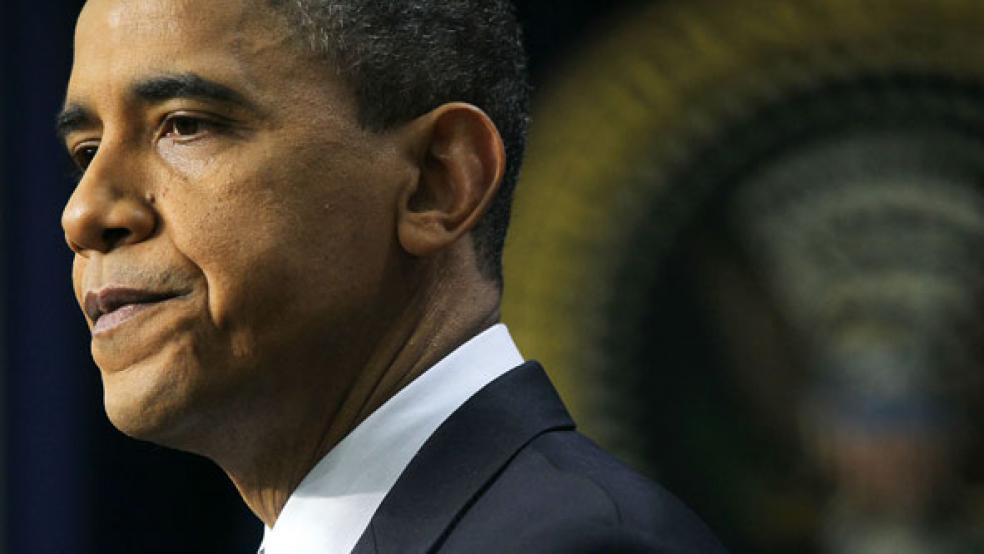Since President Obama's re-election, the Democratic Party has shown remarkable unity, while Republicans have split chaotically over the fiscal cliff, the debt ceiling debate, and aid for Hurricane Sandy. Democrats for the most part have lined up behind the president's agenda, including nearly unanimously voting to extend the Bush tax cuts for those making more than $400,000 a year, even when many liberals would have preferred the threshold to be $250,000. But as Congress begins talks over a budget deal to lift the debt ceiling, which may involve cuts to entitlement programs, Democratic solidarity will be tested, according to Jonathan Martin and Maggie Haberman at Politico:

[A]lmost as soon as the echo of Obama's inaugural address fades and he becomes a lame duck, Democrats are going to have to face a central and unresolved question about their political identity: Will they become a center-left, Democratic Leadership Council-by-a-different-name party or return to a populist, left-leaning approach that mirrors their electoral coalition?
An immediate answer may come in the entitlement debate and whether Obama and congressional Democrats will agree to any Social Security or Medicare benefit cuts to achieve deficit reduction, said a wide-ranging group of Democratic elected officials and strategists.
"In the short term that's the flash point," said longtime Democratic consultant Paul Begala.
The Democratic Party has plenty of progressive members in Congress, or what you might call traditional Democrats: Pro-union, anti-Wall Street, big-government. Then there are lawmakers cut in the mold of the above-cited DLC, a group led by Bill Clinton that pushed the party to the center and tried to moderate its tax-and-spend reputation. Indeed, it could be argued that the GOP, though splintering in highly public fashion, is more ideologically coherent — its divisions come from being out of power. As Charles Krauthammer at The Washington Post writes:
It has become conventional wisdom that Republicans are suffering an internal split that President Obama is successfully exploiting to neuter the Republican House. It is not true, however, that the Republican split is philosophical and fundamental. And that a hopelessly divided GOP is therefore headed for decline, perhaps irrelevance.
In fact, the split is tactical, not philosophical; short-term, not fundamental.
However, let's remember that ideological diversity within a party is generally a good thing. As Martin and Haberman point out, it's actually the inevitable result of a party that is expanding. One could argue that the Democratic debate between liberals (who want to defend the safety net) and the center-left pragmatists (who want to reform those programs to cut the budget deficit) essentially reflects the debate the country as a whole is having about entitlements.
Furthermore, the divide within the Democratic Party doesn't have to be reduced to an either/or proposition. The debate is not going to end with Bill Clinton vaunting like Achilles over the corpse of Elizabeth Warren. The Democratic Party can live with these tensions, much like Obama himself has done, expanding Medicaid while proposing Social Security cuts, fighting for unemployment benefits while eliminating federal jobs. It is, as Obama so often to likes to say, a balanced approach to governing.

